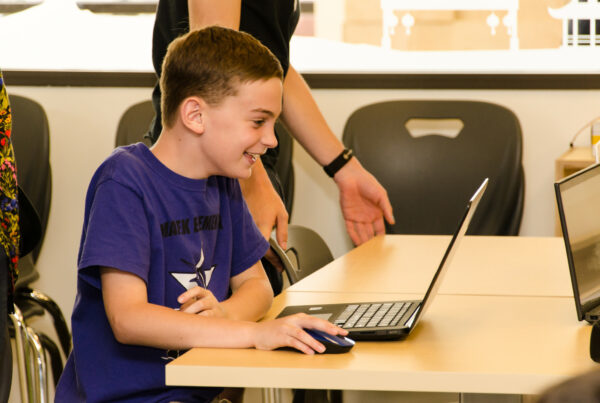Mandeep Mangat from the international franchise Mathnasium gives your kids an opportunity to fall in love with maths and get great results with online tutoring during lockdown.
These are extraordinary times for families, with schools closed and no clear timelines on pupils returning to their maths classrooms. Parents everywhere are certainly feeling the pressure to ensure their children aren’t slipping academically.
However, it’s important to remember that parents aren’t expected to replicate the school curriculum at home, to become substitute teachers, or even to homeschool in the technical sense. Considering everything else going on in a household – siblings, conference calls, cabin fever, and emotional upheaval – it would be safe to suggest that families are not homeschooling at all, they are ‘lockdown learning’ – and that’s very different!
WE HAVE SOME TIMELY ADVICE AND REASSURANCE FOR PARENTS OF 6 – 16 YEAR OLDS WHO ARE CURRENTLY LEARNING AT HOME.
At Mathnasium we are lucky to work with a large number of families with their unique needs. Some children need to catch up, some need support keeping up, and others are on their way to mastery. Many parents tell us that they themselves have maths anxiety, and they don’t want to pass that on to their children. Others simply feel they can’t provide the level of support their child needs.
This is all magnified whilst we are in lockdown, no matter what a child’s relationship with maths is!
We have therefore drawn on our experience teaching maths topics to every type of learner, helping reluctant whizz-kids and low-confidence grafters learn maths fast, and have some ideas for you, from multiplication problems and differential equations to applying maths problems to real world scenarios.
TOP TIPS FOR LOCKDOWN LEARNING:
• LEAD, DON’T TELL: Teaching is as much about leading students to the answers as telling them how to do things. Ask questions while you work with your child and lead them to finding the right answers for themselves. Understading the concept and engaging a child in the process itself is important for retention. This is helpful if you were taught differently when you were studying maths in school, as is often the case!
• MISTAKES ARE OK: Mistakes create new opportunities for deeper understanding. They are vital, in fact. Be positive when your child makes a mistake, ask them how or why they arrived at the incorrect result, ask them to trace their working back to find where they went wrong. Self-correction is so important in the learning process and it cannot be practised without making mistakes!
• REINFORCE SUCCESS: Build their confidence in solving problems whenever the opportunity arises. Focus on praising effort and persistence, rather than a natural talent or simply being clever. Acknowledge success in a way that resonates most with your child; perhaps they’d like to collect stars towards a prize, unlock privileges, or see their name in lights (or a chart in the kitchen!). Use these to encourage your child when they feel ‘stuck’ or frustrated – remind them of specific difficult problems they solved through effort and persistence.
• GO DEEPER: You don’t need to be a maths whizz yourself to support your child as they grow in confidence and ability – you just need to coach them into deeper understanding by asking questions and challenging them appropriately. If they find certain areas of maths easy you can help them to extend their knowledge by asking them “What is another way you could reach that answer?”, and “Explain to me how you did that part?”. Even if the work they’re doing goes beyond your own mathematical understanding, asking questions is a great way to provide support (and maybe learn something new yourself!).
• TAILOR TO THEM: How does your child learn and engage? There is no one-size-fits-all and every maths student is unique, even siblings. For example, children who learn aurally will do best with time to listen and discuss concepts. Those who learn visually or through practical means will prefer diagrams or tangible objects such as Lego, toy cars, coins or buttons. Others may go through pages and pages of scribbles and workings. Do they like to get into deep stretches of concentration or are they better in short bursts of activity? Do they memorise mathematical concepts or take their time to truly understand the problem? If you give your child the opportunity to learn in the most comfortable, efficient way for them as individuals, they will enjoy learning that much more.
• MAKE IT FUN! Whilst your child is learning at home it’s important to remember that your family dynamics are unique, and that you are not expected to replicate a classroom environment, complete with professional subject expert (i.e. the teacher). Rather than getting frustrated with each other, it can sometimes help to bring in a third party who can engage in maths with your child whilst maintaining the peace in your household! There’s nothing like angst and frustration to dampen a child’s enthusiasm for any subject!
Our parents know that with the right teaching method and environment, even their reluctant mathletes will flourish. They also know that confidence is key, and with regular tailored support their children can gain a solid grasp on maths concepts and sit tests and exams with a confident mindset.
We hope you’ve found these tips and suggestions helpful in supporting your child’s learning at home. If you’re concerned about your child falling behind during lockdown please do get in touch for a FREE assessment and FREE trial session.





